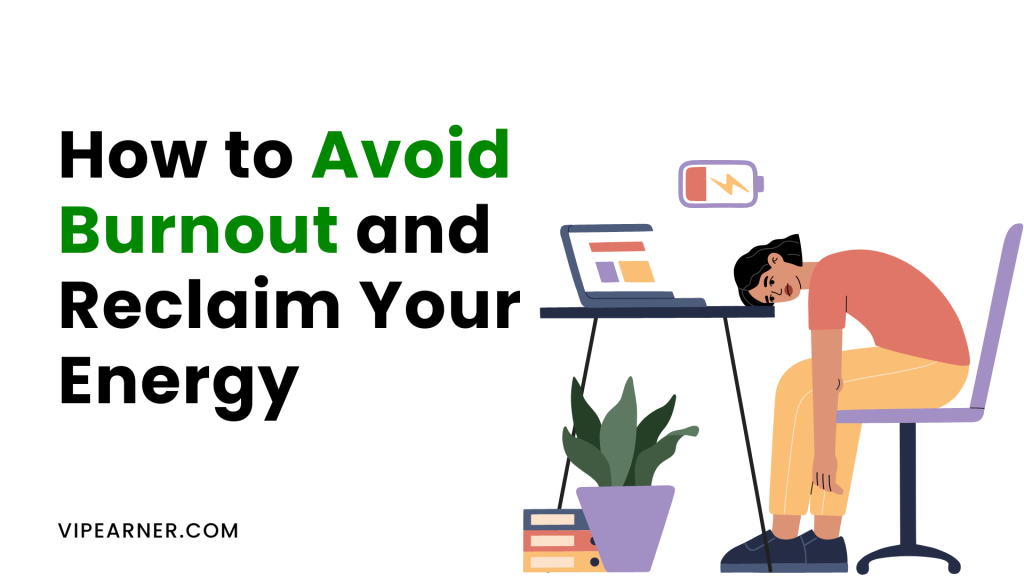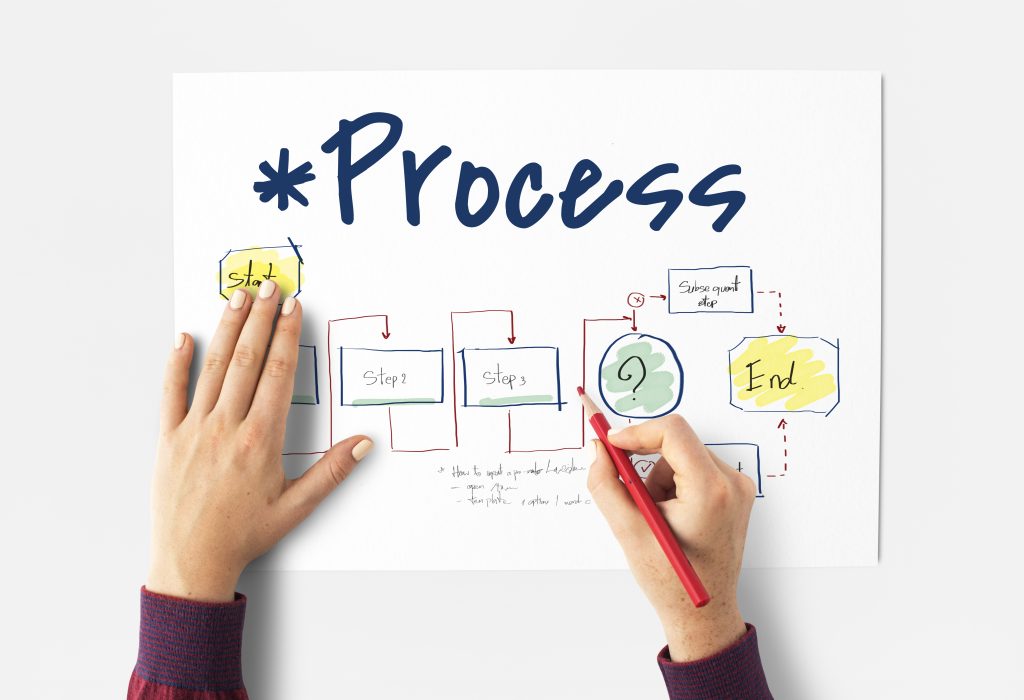Schema markup is a standardized way to label your page content so search engines know exactly what it means. By adding structured data you can unlock rich search results like review stars event details and recipe cards that boost visibility and click through rates.
How to Avoid Burnout and Reclaim Your Energy

Burnout doesn’t show up overnight. It’s a slow build - small moments of exhaustion, little slips in motivation, or creeping frustration that quietly pile up until you’re feeling completely drained.
In today’s nonstop world, burnout can hit anyone: entrepreneurs, employees, parents, students, even people chasing their personal goals. With endless to-do lists, constant digital noise, and the pressure to always achieve more, it’s no wonder so many people hit a wall.
But here’s the good news - burnout isn’t just something you have to endure or push through. With the right mindset shifts, daily habits, and boundary-setting, you can avoid falling into that spiral and reclaim both your energy and your love for what you do.
In this article, we’re breaking down the real strategies that help you not just survive the grind, but thrive through it and eventually get rid of it.
What Burnout Really Looks Like

Burnout isn’t just feeling tired after a busy day - it runs deeper than that. It’s a state where physical, emotional, and mental exhaustion pile up over time and start affecting everything you do.
You might notice you’re constantly drained, no matter how much you rest. Tasks you used to enjoy feel like a heavy burden. You catch yourself procrastinating, zoning out, or getting easily irritated. Sometimes it even hits your body, showing up as headaches, tense muscles, or trouble sleeping.
Mentally, burnout can make you feel detached - like you’re just going through the motions without really caring. You might stop celebrating wins, stop feeling proud of progress, or even start resenting the very things you once loved.
It’s important to recognize these signs early because the sooner you notice them, the easier it is to course-correct.
Why Burnout Happens

Burnout doesn’t happen just because you’re busy. It happens when the demands on you consistently outpace your ability to recover.
One big cause is overwork - pushing yourself too hard for too long without enough downtime. But it’s not just about hours. Even people working fewer hours can burn out if they carry constant mental pressure or emotional stress.
A lack of boundaries is another trigger. If you’re always saying yes, always available, or always reachable, your brain never gets the space it needs to reset.
Perfectionism can also drive burnout. When you set unrealistically high standards for yourself, nothing ever feels good enough. You’re stuck chasing an impossible finish line.
On top of that, unclear goals can add fuel to the fire. When you’re working hard but don’t know exactly what you’re aiming for, it’s easy to feel like you’re running in circles without real progress.
Understanding why burnout happens is the first step to preventing it - because once you know the roots, you can start making smarter changes.
Reframing Your Relationship With Work

A lot of burnout comes from the belief that we always need to be doing more, achieving more, or pushing harder. But here’s the truth - nonstop hustle doesn’t lead to success, it leads to exhaustion
The key is shifting from a short-term grind mindset to a long-term sustainable approach. You’re not here to win every single day at any cost, you’re here to build something meaningful over time. That means recognizing that rest and recovery are part of the process, not weaknesses or signs you’re slacking
When you reframe your relationship with work, you start making choices that protect your energy. You focus on quality over quantity, you work smarter instead of harder, and you stop measuring success by how busy you are
This shift is what keeps you in the game for the long haul, without burning out along the way
Setting Boundaries and Saying No

One of the most powerful ways to avoid burnout is learning how to set clear boundaries and protect your time. Without boundaries, your work or responsibilities will expand to fill every available space, leaving you drained and resentful
Here’s how you can start setting better boundaries:
• Decide your work hours and stick to them - no late-night emails or just-one-more-task moments
• Learn to say no to extra requests or projects that don’t align with your main priorities
• Protect personal time by blocking off breaks, evenings, or weekends as non-negotiable
• Turn off notifications or set devices to “do not disturb” when you’re resting or with family
• Communicate your limits clearly to others so they know when and how to reach you
Boundaries aren’t walls - they’re filters that help you manage what truly matters while leaving space for rest and recovery
Building Better Habits for Energy Management

Avoiding burnout isn’t just about cutting back on work - it’s also about how you take care of your body and mind day to day. Strong, healthy habits make you more resilient and better equipped to handle challenges without feeling wiped out
Here are some habits that can make a big difference:
• Prioritize sleep - aim for consistent, quality rest every night so your body and brain can fully recharge
• Take regular movement breaks - stretch, walk, or do light activity to keep your energy flowing
• Stay hydrated and eat nourishing foods - fuel matters when it comes to stamina and focus
• Give your mind a break - even a few minutes of mindfulness, deep breathing, or quiet time can reset your mental state
• Stay connected to people who lift you up - social support is a big energy booster, even for introverts
When you build these habits into your routine, you create a solid foundation that helps you handle stress before it turns into burnout
The Power of Rest and Recovery

Rest isn’t just about sleeping at night or taking time off when you’re completely wiped out. It’s about building regular recovery into your life before you hit the point of exhaustion.
Intentional rest means stepping away from work to reset your mind and body. It can be as simple as going for a walk, spending time in nature, enjoying a hobby, or hanging out with people you care about. It’s not about numbing out in front of a screen but doing things that actually refill your energy.
When you give yourself space to rest, you come back sharper, more creative, and better able to handle what’s ahead. Without recovery, you’re just running on fumes. And when you’re running on fumes, even the smallest tasks start to feel overwhelming.
Making rest a priority isn’t a luxury - it’s essential if you want to stay engaged and productive over the long term.
Simplifying Your Workflow

One major reason people burn out is they overload themselves with too many tasks, tools, or projects all at once. The more you pile on, the more scattered your focus becomes, and the harder it gets to keep up without feeling overwhelmed.
Simplifying your workflow means taking a hard look at what actually matters and cutting out the rest. Focus on the tasks and projects that bring the biggest results. Let go of things that don’t move the needle or add unnecessary complexity to your day.
Look for ways to streamline. Can you automate routine processes? Can you delegate certain tasks to someone else? Can you create a simpler system for managing your priorities? The goal is to create a workflow that feels clear and manageable, not like a never-ending list you can never get ahead of.
When your work is simplified, you free up mental space and energy to focus on what really matters, making it much easier to avoid the burnout spiral.
Staying Connected to Purpose

It’s easy to lose sight of why you’re doing what you do when you’re buried in tasks, deadlines, and distractions. Over time, that disconnect can make even meaningful work feel empty and exhausting.
To avoid burnout, it’s crucial to regularly reconnect with your purpose. Remind yourself why you started, what goals truly matter to you, and what impact you want to create. This bigger-picture focus gives your daily work meaning and helps you push through tough moments without feeling like you’re just grinding endlessly.
When you feel connected to a clear purpose, you’re more motivated, more focused, and more resilient. Purpose acts like fuel, keeping you going even when challenges pop up. It’s not just about what you’re doing - it’s about why you’re doing it, and that makes all the difference.
Recognizing When It’s Time to Get Help

Sometimes burnout goes beyond what you can fix on your own with better habits or time management. If you’re feeling completely overwhelmed, hopeless, or stuck in a place where nothing seems to help, it might be time to reach out for extra support.
That could mean talking to a therapist, counselor, or coach who can help you work through the deeper mental and emotional layers of burnout. It might mean checking in with your doctor if stress is affecting your health. Or it could mean having an honest conversation with a boss, business partner, or loved one about what you need.
Getting help is not a sign of failure - it’s a smart move to protect yourself and get back on track. Burnout is common, but you don’t have to face it alone. Recognizing when you need backup is part of staying strong and resilient for the long haul.
RECAP: Remedies to Bounce Back From Burnout

If you’re already feeling burned out, don’t panic - you can recover, but it takes intentional action. First, give yourself permission to slow down. You can’t power your way through burnout by doing more. Step back, clear some space, and drop non-essential tasks.
Next, rebuild your energy with real rest - not just zoning out in front of the TV, but doing things that actually recharge you. That might be taking short breaks throughout the day, setting aside weekends to unplug, or even planning a few days off if you’re deeply worn down.
Then, reassess your workload. Look honestly at what’s draining you. Are there tasks you can delegate, automate, or cut entirely? Can you rearrange your schedule to work in a more sustainable rhythm?
Also, lean on your support system. Talk to people you trust about what you’re going through. Sometimes just sharing the load emotionally can help lighten the mental weight.
Finally, reconnect to what you enjoy. Reignite your passion by focusing on the parts of your work or life that light you up, even in small ways. That spark can help pull you out of the burnout fog and remind you why you started in the first place.
Conclusion
Burnout doesn’t mean you’re weak, lazy, or failing - it means you’ve been running at full speed without enough space to recharge. It’s a signal, not a dead end.
The key to avoiding or recovering from burnout is being intentional about how you manage your time, energy, and focus. You don’t need to do everything, please everyone, or hustle nonstop. You need to protect what matters, rest when needed, and stay connected to your purpose.
When you create a sustainable rhythm for yourself, you’ll not only get more done over time - you’ll enjoy the work, stay motivated, and keep your health and passion intact.
Remember, you’re building a long game here. Take care of your energy like you would any valuable resource, and you’ll set yourself up for success without sacrificing your well-being.

